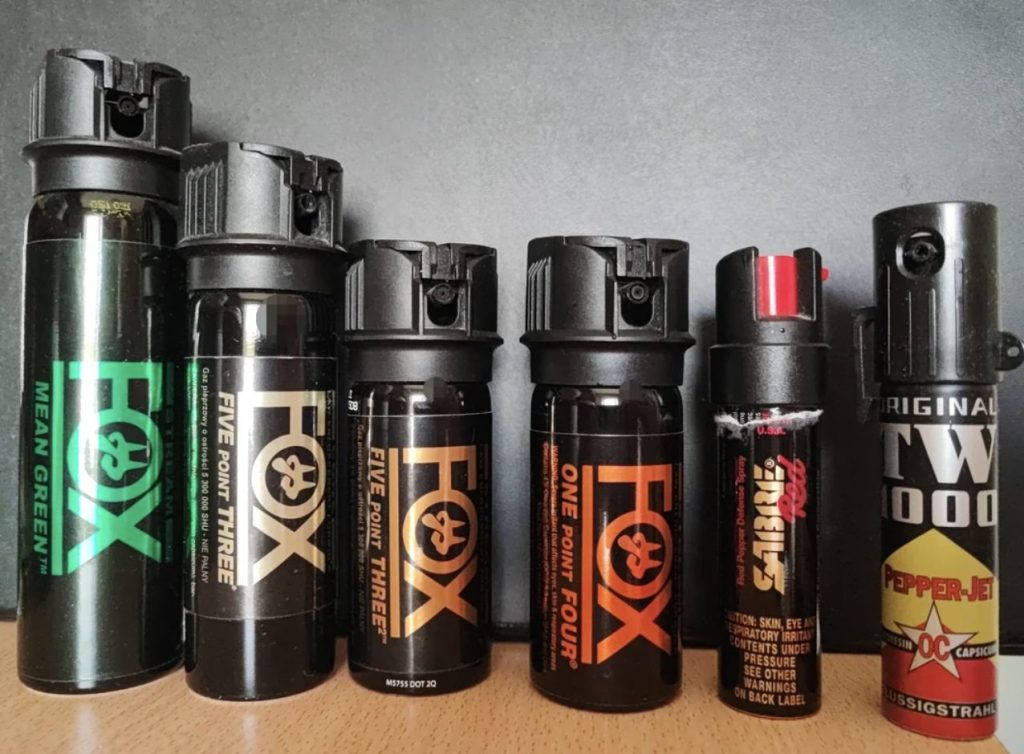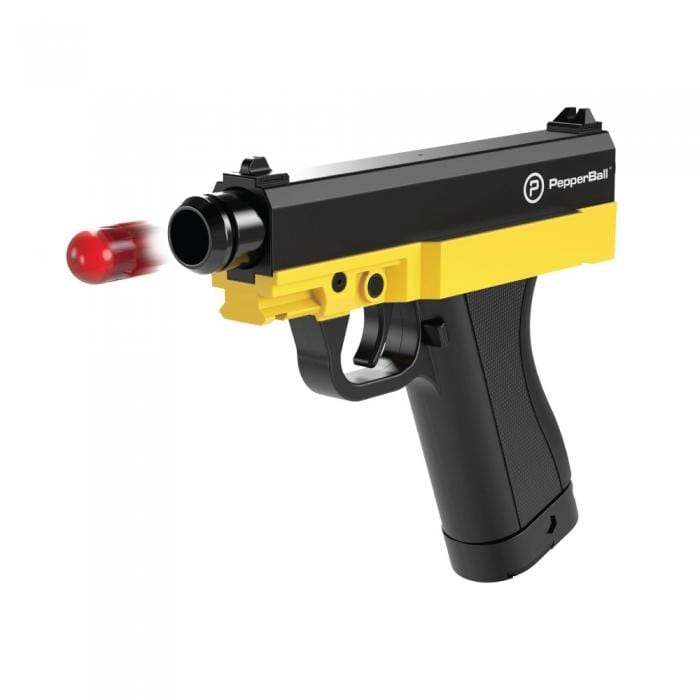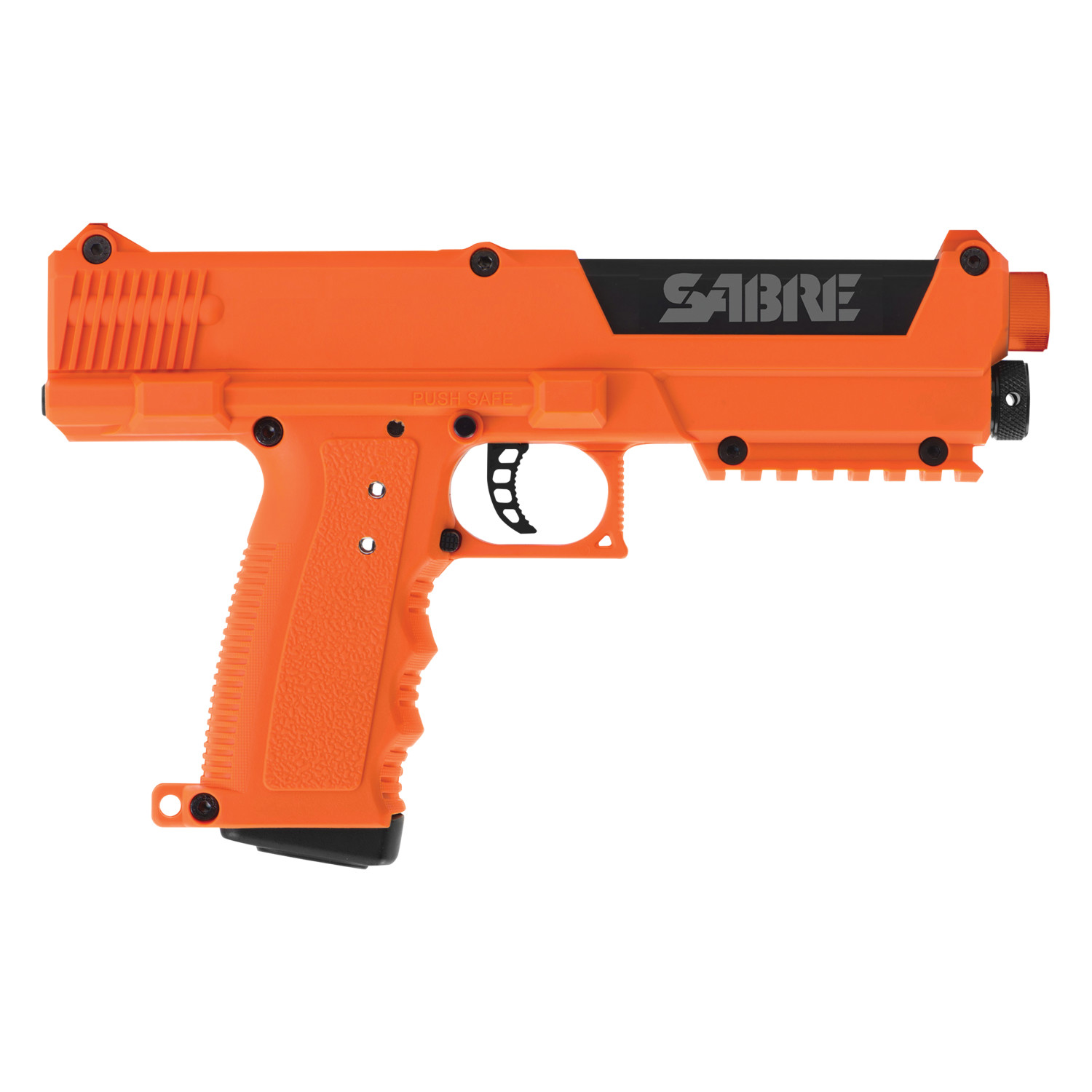Is Pepper Spray a Deadly Weapon? Certainly Overusing Pepper spray against someone has respiratory problems can lead to death or serious bodily injury, So please use it as a last resort only in self defense situations Only,
Pepper spray is used for self-defense purposes by individuals or the law enforcement officers as it is legal to possess in most of the US states.
I have spent +7 hours of research through Youtube, Forums & Stories in the news sites to be able to come up with an in-depth guide about the theory of pepper spray can kill or it is just a non-lethal tool.
Please read until the end as i covered everything 🙂
What is pepper spray, and how does it work?
It is a non-lethal weapon & not deadly weapon as long as you know how to use pepper spray wisely.
- Composition: Pepper spray is a chemical blend that irritates the eyes to cause tears, pain, and temporary blindness, so that you can stop the attacker.
- Active Ingredient: The active ingredient in pepper spray is OC (oleoresin capsicum), which is derived from hot peppers to work as a very effective self defense tool.
- Mechanism of Action: Upon contact with the eyes or skin, it triggers an inflammatory response.
- Range: Typical sprays can reach several feet, allowing users to maintain a safe distance from an assailant.
- Duration of Effects: The effects can last from 15 to 60 minutes, providing ample time to escape or seek help.
Potential dangers and legal considerations
- Risk of Misuse: Incorrect usage can cause unintended harm to the user or innocent bystanders.
- Legal Restrictions: The legality of carrying and using pepper spray or mace spray varies by country, state, and city. however pepper spray is legal in most of the US states.
- Severity of Effects: There’s a possibility of severe reactions in certain individuals, including respiratory issues.
- Responsibility: The Possession of pepper spray for self-defense must come with responsibility as it is considered a weapon, Yes NOT prohibited weapon but it can cause a serious bodily injury, so use it wisely.
Effects of Pepper Spray
Immediate effects on the body
- Inflammatory Response: Causes an immediate discomfort and burning sensation in the eyes and skin.
- Compromised Vision: Can temporarily blind a target due to the swelling of the eye capillaries.
- Respiratory Distress: Makes breathing difficult by causing coughing and potentially choking.
- Panic Reaction: May induce a state of panic, further impairing the ability of an attacker to continue.
- Neutralizing Threat: Allows for self-defense without causing permanent harm, in most cases.
Long-term health implications
- Continued Irritation: Some individuals may experience ongoing skin or eye irritation beyond the initial effect period.
- Respiratory Issues: Those with pre-existing conditions such as asthma may have a heightened reaction or longer-term respiratory problems.
- Sensitivity Increase: Repeated exposure can lead to increased sensitivity, causing more severe reactions to future encounters.
- Risk of Complications: Rarely, there could be serious complications such as glaucoma or permanent vision damage if medical treatment isn’t sought swiftly after exposure.
- Psychological Impact: Potential psychological trauma from a pepper spray incident, which may require professional counseling or therapy.
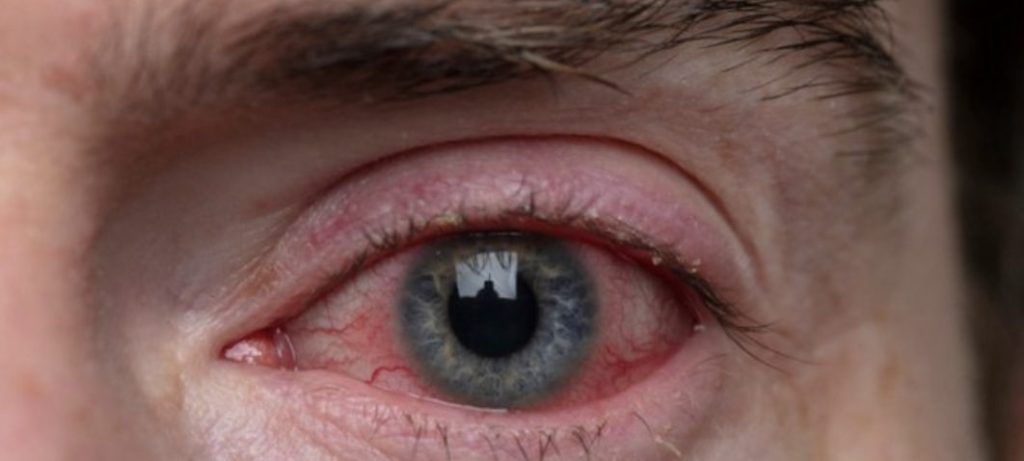
Pepper Spray vs. Deadly Weapons
Comparison with lethal weapons
- Usage:Pepper spray is generally used for self-defense or crowd control, while lethal weapons are used in more severe situations or combat scenarios.
- Lethality:Pepper spray is a non-lethal weapon intended to temporarily incapacitate a target, as opposed to deadly weapons that can cause permanent injury or risk of death.
- Training:Pepper spray requires minimal training for effective use, while lethal weapons often require extensive training and practice.
- Accessibility:In many jurisdictions, it is easier for civilians to legally obtain and carry pepper spray than deadly weapons.
- Legal Implications:: Using pepper spray is typically subject to fewer legal repercussions compared to using a deadly weapon in self-defense situations.
Difference in intent and potential harm
- Intent of Use:The primary intent behind defense spray is incapacitation without lasting harm, whereas deadly weapons are designed to neutralize a threat through lethal force.
- Potential for Harm:Pepper spray can cause discomfort and temporary incapacitation, which rarely results in long-term health consequences. In contrast, deadly weapons pose a high risk of causing fatal injuries or long-term disabilities.
- Psychological Impact:The use of pepper spray may result in psychological distress but is less likely to cause severe psychological trauma compared to the use of deadly weapons.
- Risk Assessment:: Employing pepper spray presents a lower risk to bystanders and the person being sprayed, whereas deadly weapons increase the risk of collateral damage and accidental injury or death.
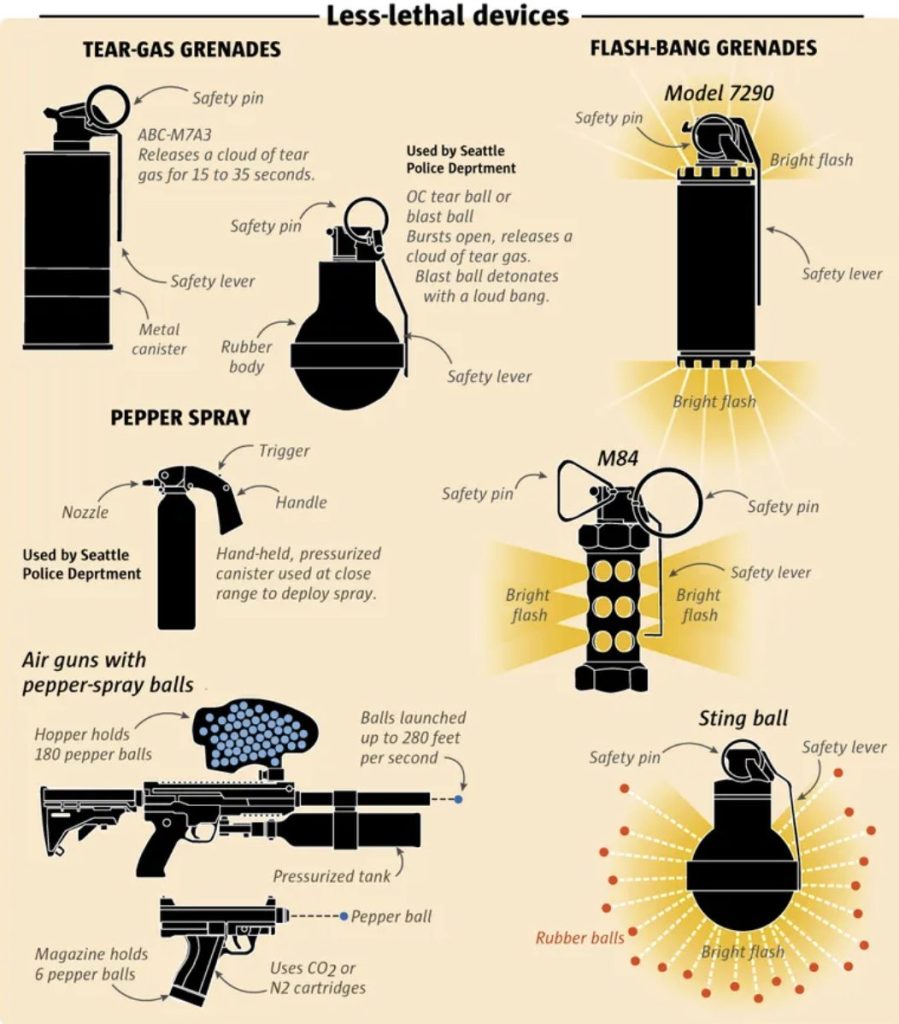
Pepper Spray Laws
Different regulations across countries and states
- Variability:The legality of pepper spray varies by location, with some countries and states having strict regulations or outright bans.
- Age Restrictions:Many places have age requirements for purchasing or carrying pepper spray, typically limiting it to individuals 18 and older.
- Size and Strength:Certain jurisdictions may regulate the size of the pepper spray canisters and the concentration of its active ingredients.
- Carry Permits:In some areas, carrying pepper spray may require a permit akin to those required for concealed firearms.
- Travel Considerations:Travelers should be aware that pepper spray cannot generally be carried on commercial flights and may be illegal in the destination country.
Restrictions and guidelines for use
- Self-Defense Stipulation:Pepper spray is often legally restricted to self-defense situations, with misuse potentially leading to criminal charges.
- Public Spaces:Usage in public areas can be subject to specific regulations to minimize harm to bystanders.
- Sale Regulations:Sale of pepper spray may be regulated, including background checks or purchase from licensed dealers only.
- Proper Usage Training:Some regions recommend or require training on the proper use of pepper spray for effective and lawful self-defense.
- Reporting Requirements:: After using pepper spray in self-defense, there may be a legal requirement to report the incident to law enforcement authorities.
Case Studies
Instances where pepper spray was used in self-defense
- Home Intrusions:Homeowners have used pepper spray to deter burglars or assailants, preventing potential harm to themselves and their families.
- Street Harassment:Individuals, especially women, have employed pepper spray when faced with aggressive behavior or threats in public places.
- Assault Prevention:Potential victims of physical assaults have successfully neutralized threats by utilizing pepper spray, allowing them time to escape danger.
- Animal Attacks:Hikers and joggers have used pepper spray to fend off aggressive animals, such as dogs or bears, in rural and wilderness areas.
- Public Safety Personnel:Police and security officers have deployed pepper spray to subdue and apprehend violent suspects while minimizing harm.
Outcomes and legal repercussions
- Justifiable Use:In many cases, the use of pepper spray in self-defense has been deemed legally justifiable, resulting in no charges against the user.
- Criminal Charges:Misuse of pepper spray for purposes other than self-defense, such as in the commission of a crime or unjustified assault, has led to criminal prosecutions.
- Civil Suits:Some incidents have led to civil litigation against pepper spray users, particularly when the use was deemed excessive or unwarranted.
- Inquest Proceedings:In certain serious instances involving fatalities or severe injuries, inquests have been conducted to scrutinize the circumstances and legality of pepper spray use.
- Policy Changes:High-profile cases have sometimes prompted reviews of regulations surrounding pepper spray, leading to legal reforms and updated training protocols for its use.
Safety Measures
Proper Handling and Storage of Pepper Spray
When you purchase defense sprays, It must have a safety features, Because any safety feature designed to prevent accidental discharge:
- Accessibility:Ensure pepper spray is easily accessible when needed but secure from unauthorized access.
- Temperature Control:Store in a cool, dry place away from direct sunlight to prevent canister damage or pressure changes.
- Regular Checks:Regularly inspect the canister for leaks or expiration date to maintain effectiveness.
- Child Safety:Keep out of reach of children to avoid accidental discharge.
- Transport Guidelines:Adhere to legal guidelines for transporting pepper spray, including restrictions on airplanes and in certain public spaces.
Tips for Effective Use and Minimizing Risks
- Aim Training:Practice aiming and spraying techniques to ensure accuracy under stress.
- Familiarity:Familiarize oneself with the operation of the pepper spray, including safety mechanisms and activation procedures.
- Effective Range:Understand the effective range of the spray to maintain a safe distance from an assailant, I recommend an effective range of six feet while in training the effective range of over 20 is a lot safer until you become familiar of using it.
- Escape Plan:After deploying pepper spray, have a plan to quickly escape to safety and call for help.
- Contamination Avoidance:Be aware of wind direction to prevent self-contamination when deploying spray outdoors.
- Legal Knowledge:Know the local laws regarding the carry and use of pepper spray to ensure compliance and justify actions if necessary.
Alternatives to Pepper Spray
Other Non-Lethal Self-Defense Options
- Stun Guns:Electronic devices that temporarily incapacitate an attacker with a high-voltage, low-amperage electrical charge.
- Tactical Flashlights:Can disorient attackers with bright light and, if designed with a beveled edge, can be used as an impact weapon.
- Personal Alarms:Emit loud noises to attract attention and deter attackers.
- Self-defense classes:Training in martial arts or self-defense techniques provides knowledge and skills to ward off an assault.
- Defensive Sprays:Options like gel sprays or foams that reduce blowback risk in windy conditions compared to pepper spray.
Comparative Analysis and Effectiveness
- Range:Pepper spray can reach approximately 10-12 feet, giving safe distance. Stun guns and personal alarms require closer proximity.
- Lasting Impact:Pepper spray effects can last up to 45 minutes, while stun gun effects are momentary, requiring immediate escape.
- Learning Curve:Basic use of pepper spray is simple; however, effective use of self-defense techniques typically requires more extensive training.
- Wind Sensitivity:Alternative sprays such as gel sprays are less affected by wind, providing safer options in outdoor conditions.
- Legal Restrictions:Some areas may have restrictions or require permits for stun guns, whereas pepper spray is often less regulated.
- Physical Contact:Use of a tactical flashlight or stun gun requires physical engagement, whereas pepper spray allows for distance from the assailant.

Debunking Myths
Dispelling misconceptions about pepper spray
- Myth: Pepper spray is lethal.Reality: While pepper spray can incapacitate an attacker, it is a non-lethal self-defense tool designed to temporarily blind or cause discomfort, allowing for escape.
- Myth: It’s effective against multiple attackers.Reality: Pepper spray can be a challenge to use effectively against multiple assailants, especially if they are spread out or the user is under immense stress.
- Myth: Pepper spray works on everyone.Reality: Certain individuals may not respond to pepper spray as expected due to various factors such as drug influence, alcohol, or a high pain threshold.
- Myth: It’s always legal to carry pepper spray.Reality: The legality of carrying pepper spray varies by country, state, and sometimes even cities, with specific regulations on age and concentration levels.
Separating facts from fiction
- Fact: Training increases effectiveness.Users with training are more likely to deploy pepper spray effectively and under pressure compared to untrained individuals.
- Fact: Environmental conditions matter.Pepper spray can be less effective in windy or rainy conditions, which can disrupt its trajectory and potency.
- Fact: There’s an expiration date.Like many products, pepper spray has a shelf life, and its effectiveness can diminish over time, necessitating regular replacement.
- Fact: Not just for humans.Special formulations of pepper spray are available for defense against aggressive animals such as bears and dogs.

Conclusion
Final thoughts: Is Pepper Spray a deadly weapon?
- Risk of self-contamination:Users may inadvertently expose themselves to pepper spray, especially in windy conditions or if not used at a safe distance from the assailant.
- Possibility of escalation:Introducing pepper spray into a conflict might escalate the situation, potentially leading to more violence.
- Medical complications:Certain individuals may have severe reactions to pepper spray, including respiratory issues or allergic reactions, which could be life-threatening.
- Liability issues:Inappropriate or illegal use of pepper spray could result in criminal charges or civil litigation against the user.
Importance of responsible use and informed decision-making
- Educational responsibility:Understanding the proper use and potential effects of pepper spray is critical for any user.
- Legal awareness:Users must be aware of the laws and regulations surrounding pepper spray in their jurisdiction to ensure they remain within legal bounds.
- Personal assessment:Individuals should evaluate their ability to use pepper spray responsibly before deciding to carry it as a self-defense tool.
- Safety priority:The primary goal of carrying pepper spray is personal safety; its use should always be in line with that objective.

